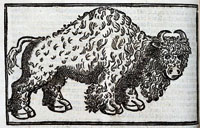We Are Starved
Ivor Noel Hume, author and retired Chief Archeologist for Colonial Williamsburg, discusses the atrocities and indignities English colonists at Jamestown inflicted on the Native Americans in the region, including Pocahontas.
Ivor Noel Hume, author and retired Chief Archeologist for Colonial Williamsburg, discusses the atrocities and indignities English colonists at Jamestown inflicted on the Native Americans in the region, including Pocahontas.
Historian Cathy Hellier explains the differences between modern American English and the English of the colonists during the 1700s; she looks also at new ideas on the dialect of African Americans in the Williamsburg area at the time. Click here to learn more about 18th century speech.
Historian Nancy Milton describes the English influences on the U.S. Constitution, including documents reaching as far back as the Magna Carta.
Curator Erik Goldstein talks about four Patriot flags known to have been captured by Banastre Tarleton during the American Revolution.
This iCue Mini-Documentary describes the war that ignited between England and France when a young George Washington was drawn into a skirmish with French scouts. Control over the continent of America was at stake as the two world powers conducted a massive war in the colonies.
This mini documentary, produced by NBC, describes the Articles of Confederation, which suited the goals of the Americans when they were fighting for freedom from the monarchy. These documents, which favored state's rights over federal power, were inadequate after the Revolution when a strong central government became necessary.
To view the documentary, follow the link below and scroll down past "Thomas Paine and 'Common Sense'" and "Women in the American Revolution."

The images in this collection, focusing on the Americas, come from books printed or created in Europe between about 1492 and 1825. Images include woodcuts, copper engravings, and paintings. The database, still being compiled, currently contains 6,685 images and will eventually contain some 7,500 images. Image viewing software is available from the site.
The visitor can browse the entire archive or search by time period, geographical area, keyword, or subject, including indigenous peoples, flora and fauna, artifacts, industry, human activities, geography, maps, city views and plans, and portraits. Some images, such as Ptolemy's map of the world, may be familiar. Others are reproduced for the first time. Navigation requires some practice, but is worth the effort.
According to the FPRI sites, "In the wake of 9/11, President George W. Bush announced that henceforth those states that harbored or fostered terrorism would be held as accountable as the terrorists. The translation of the war on terrorism from groups to state meant either to change a government's behavior, or, failing that, to change the government itself. Military force might overthrow a regime such as the Taliban or Saddam's Iraq but what would be put in its place? And how could the United States and its allies assure the success of the new political order? In 2005, the Foreign Policy Research Institute initiated a pair of studies that would analyze the lessons learned thus far from what the military calls Phase IV, or stabilization and reconstruction following the end of major conflict. Andrew Garfield led a British and American research team that interviewed British officers and officials for their perspectives on the efforts of their U.S. Coalition partner in Iraq. Frank G. Hoffman surveyed U.S. Marine efforts in Iraq. In this presentation, Andrew Garfield and Frank G. Hoffman present the newly completed studies, designed to aid U.S. military and civilian planners to refine a set of best practices, including a set of principles that can become a consensus, as the U.S. confronts a long and difficult struggle."
Video and audio options are available.
This mini documentary, produced by NBC, describes Thomas Paine's anonymous pamphlet, "Common Sense"—published shortly after the Battle of Bunker Hill in 1775—that helped persuade Americans to push for full independence from Britain.
Kyle Zelner of the University of Southern Mississippi discusses the military history of British North America prior to the Revolutionary War, arguing for the significance of this history to both military and general U.S. history overall. Zelner also covers the Revolutionary War itself. This lecture was part of "What Students Need To Know About America's Wars, Part I: 1622-1919: A History Institute for Teachers," held July 26-27, 2008, at the First Division Museum in Wheaton, IL, sponsored by the Foreign Policy Research Institute's Wachman Center and by the Cantigny First Division Foundation.
Video and audio options are available.